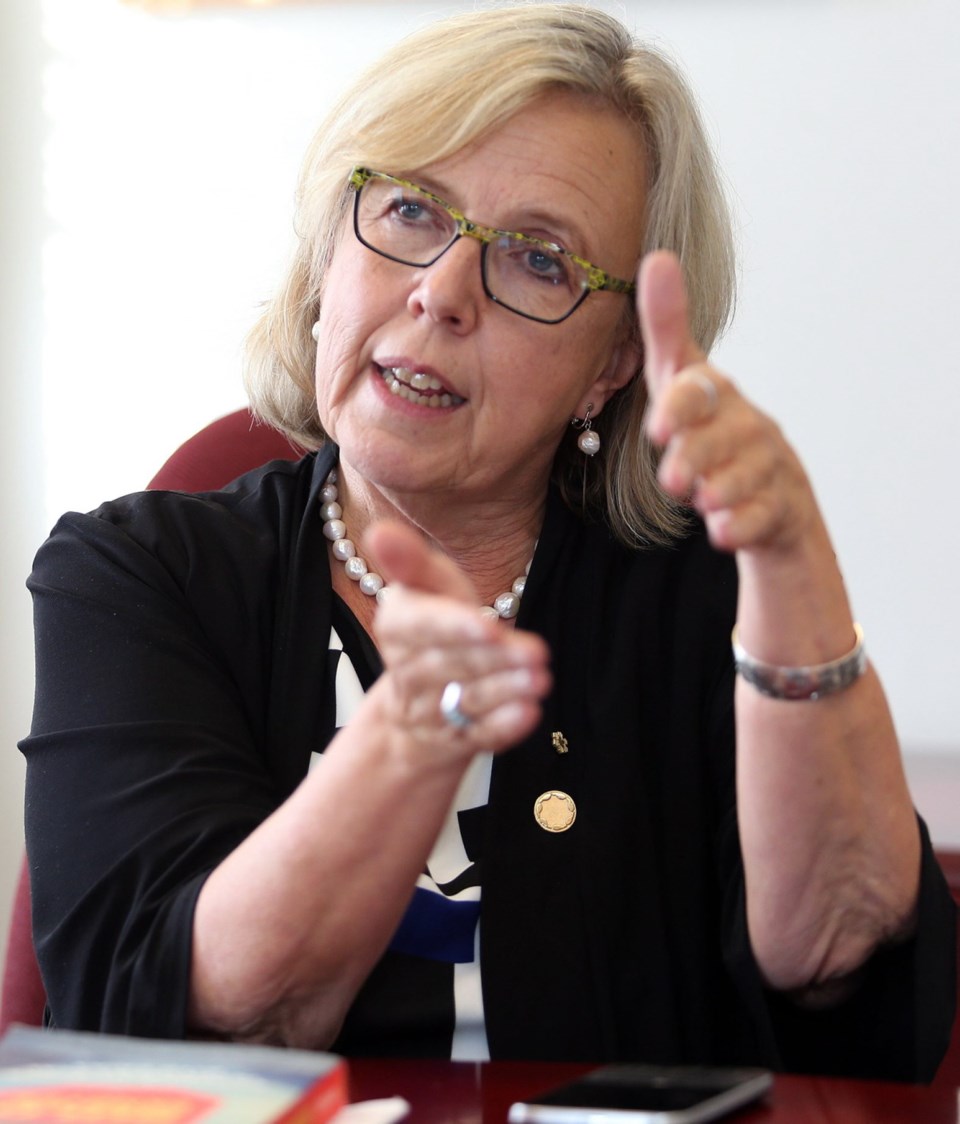OTTAWA — Green Party Leader Elizabeth May’s supporters are springing to her defence, saying the call for a robust and open debate on the party’s future is a dissident ploy aimed at launching a divisive attack against her leadership.
“How can the party possibly even stop an open debate in today’s world?” said Wes Regan of Vancouver, the party’s urban affairs critic and spokesman for a group of former candidates and shadow cabinet uniting to defend their leader. “But in the case of those demanding … some kind of formal ‘open debate,’ the term is serving as political euphemism for ‘Elizabeth is the problem’ when in fact she is one of the greatest single assets this party has,” he said in an email to the Vancouver Sun. “That’s at the heart of this, and that’s what should rightfully be called out.”
A Green Party of Canada spokesman, meanwhile, issued a statement Friday outlining the various ways the party is consulting its estimated 20,000 members.
They include an electronic leadership review vote, to take place in April, and a policy convention in Ottawa in early August expected to draw 500 members.
Three party dissidents, including former executive-director Johan Hamels, complained this week that the party is holding a leadership review vote without first holding an open debate on the party and its leadership.
On Thursday they were joined by Colin Griffiths, chair of the party’s internal nominations and elections fairness committee, who said he was stepping down over the issue.
“Our failure to accommodate a mechanism of wider discussion, given the strong feelings that have already been voiced within council and cabinet emails, will very likely result in a more acrimonious and divisive process,” Griffiths said in a letter to senior party members.
But Green officials reject the notion that there hasn’t been a full debate. Spokesman Dan Palmer said Friday the party had solicited comment since the election, and received replies from roughly 120 candidates, 330 volunteers, 2,100 members, and more than 8,700 supporters.
“Surveys asked for feedback on the election effort and also for opinions on the future direction of the party. We are currently collating this feedback into a report, which will be circulated to relevant stakeholders once complete,” he said in a statement.
Regan said the dissidents’ push for an open debate on the party’s future, and even for a full-scale leadership convention, is in fact “the very thing that threatens to create that ‘acrimonious and divisive process.’ ”
May’s critics acknowledge she has been enormously successful in certain areas — like easily winning her Saanich-Gulf Islands riding in the past two elections and being a high-profile and media-savvy political figure on Parliament Hill.
But there is concern over the party’s performance outside of the single Gulf Islands riding. In the October election, May talked of a potential breakthrough, with 10 to 15 possible seats and a grip on the balance of power in a minority Parliament. But the Greens won just May’s own seat and took only 3.4 per cent of the national vote, half the total of May’s first election as leader in 2008. That was also less than the share won by the party under former leader Jim Harris in the 2004 and 2006 elections.
A second concern is May’s leadership style and management skills, which critics say is the reason the party has gone through six full-time and two interim executive-directors since she took over from Harris in 2006.



